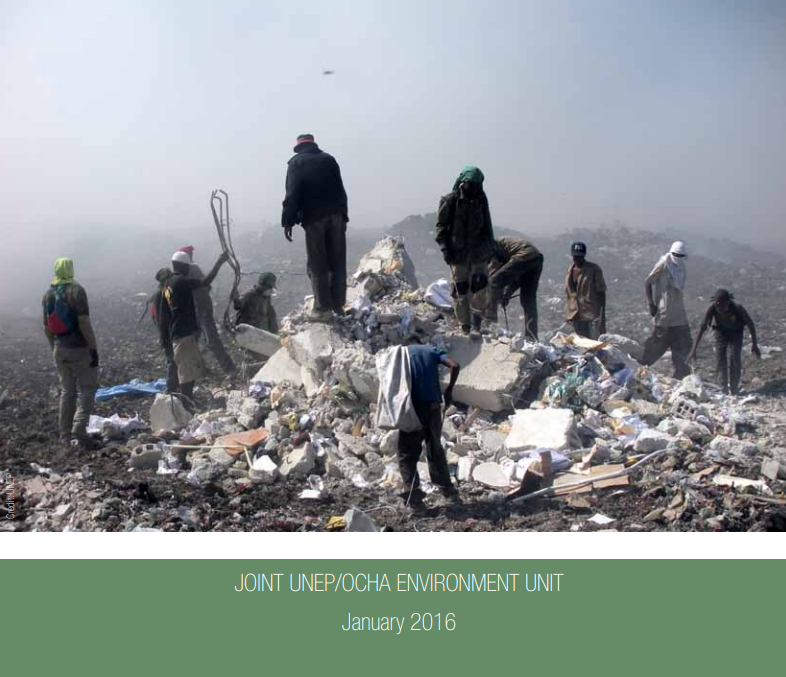The Environment and Humanitarian Action (EHA) country study of Haiti is part of a series of country-level studies that assess the extent to which environmental concerns have been mainstreamed in humanitarian action.
country study of Haiti is part of a series of country-level studies that assess the extent to which environmental concerns have been mainstreamed in humanitarian action.
In April 2015, the UN Environment/OCHA Joint Unit, with support from Groupe URD, undertook a mission to Haiti to look at environmental mainstreaming in the humanitarian response to floods, tropical storms and hurricanes with primary focus on the aftermath of the 2010 earthquake. The study shows that immediately after the disaster, the environment was put under stress due to the procurement of material to construct emergency shelter, exacerbating the ongoing deforestation in Haiti. Eventually transitional shelter initiatives increased demand for gravel, leading to the expansion of unregulated quarrying. In turn, this accelerated ongoing topsoil and river bank erosion, increasing the likelihood of landslides.
You can consult the report here.